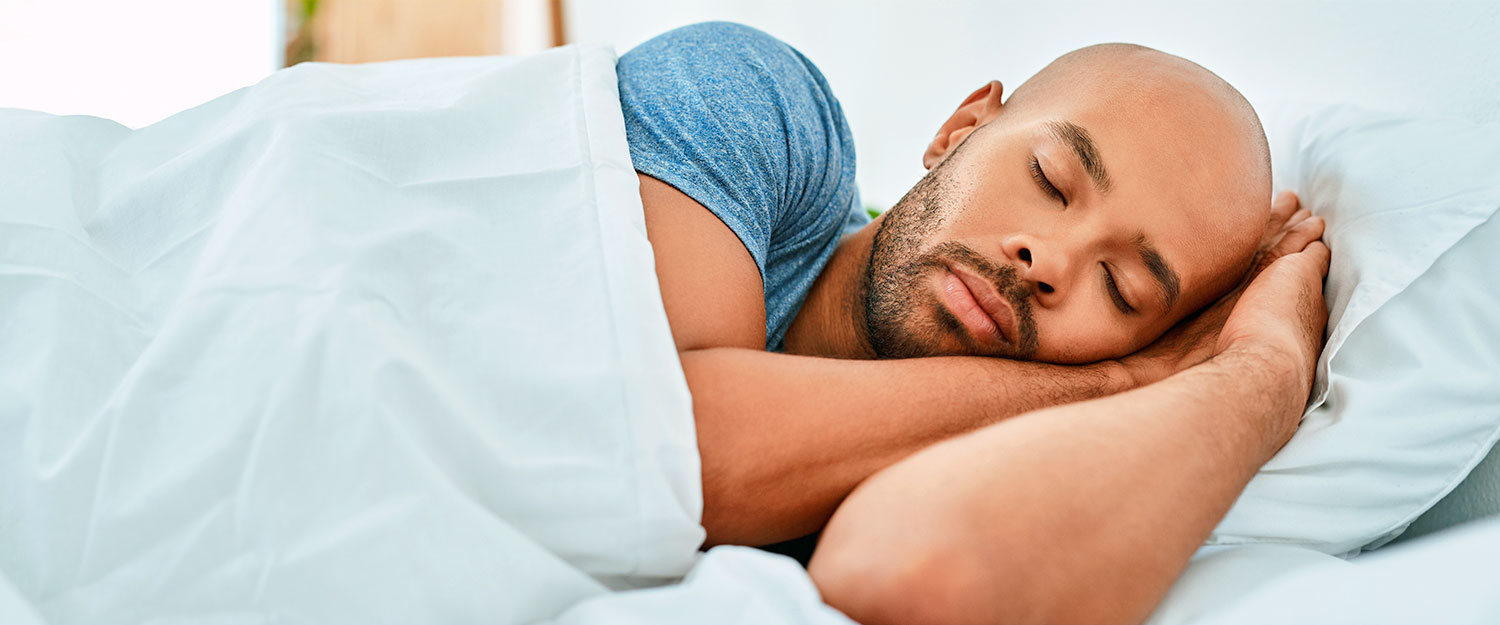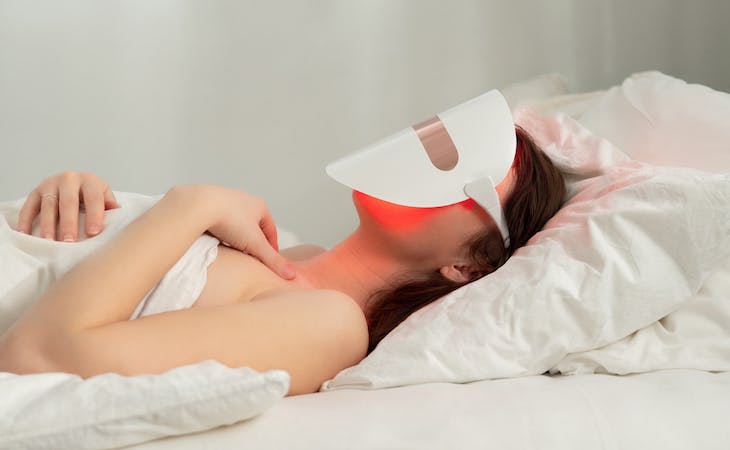Specialist Insomnia Counseling - Get Specialist Support
Specialist Insomnia Counseling - Get Specialist Support
Blog Article
Effective Therapy Solutions for Taking Care Of Rest Disorders and Enhancing Peaceful Sleep
In the world of health care, the monitoring of sleep problems and the mission for relaxed rest are pivotal elements of general wellness. As we navigate the intricate landscape of sleep conditions and seek to enhance our sleep experience, a much deeper understanding of these treatment services may hold the secret to unlocking a more relaxing and satisfying corrective trip.
Cognitive Behavior Modification for Insomnia (CBT-I)
Cognitive Behavioral Treatment for Insomnia (CBT-I) is an organized, evidence-based treatment strategy that concentrates on addressing the underlying elements contributing to rest disruptions. This kind of therapy aims to modify habits and ideas that exacerbate sleeplessness, inevitably promoting healthy sleep patterns. CBT-I typically entails numerous key parts, consisting of cognitive therapy, sleep constraint, stimulation control, and rest health education.
Cognitive treatment assists people recognize and change negative idea patterns and beliefs concerning sleep that might be impeding their capacity to drop or remain asleep. Sleep restriction involves limiting the amount of time invested in bed to match the individual's real sleep period, thereby raising rest efficiency (cognitive behavioral therapy for insomnia (CBT-I)). Stimulus control techniques aid establish a strong association between the bed and sleep by encouraging individuals to head to bed just when sleepy and to avoid involving in boosting tasks in bed
Additionally, sleep hygiene education and learning concentrates on creating healthy and balanced rest behaviors, such as keeping a regular rest timetable, developing a relaxing bedtime routine, and enhancing the sleep environment. By attending to these aspects adequately, CBT-I offers an efficient non-pharmacological intervention for handling sleep problems and boosting total sleep top quality.
Rest Hygiene Practices
Having developed the structure of cognitive restructuring and behavior modifications in resolving sleeplessness through Cognitive Behavioral Treatment for Sleep Problems (CBT-I), the focus now shifts towards discovering necessary Rest Hygiene Practices for maintaining optimal sleep high quality and general health.
Rest health practices include a variety of habits and environmental elements that can dramatically influence one's ability to sleep and stay asleep throughout the night. Consistent rest and wake times, creating a relaxing going to bed regimen, and enhancing the rest atmosphere by maintaining it dark, quiet, and cool are critical components of good sleep hygiene. Restricting direct exposure to displays prior to going to bed, staying clear of energizers like high levels of caffeine close to going to bed, and participating in routine exercise throughout the day can additionally promote better sleep quality.
Additionally, practicing relaxation methods such as deep breathing workouts or meditation prior to bed can assist relax the mind and prepare the body for sleep. By including these rest health techniques right into one's daily regimen, individuals can develop a healthy and balanced sleep pattern that sustains restful sleep and total wellness.
Relaxation Techniques and Mindfulness
Implementing leisure strategies and mindfulness techniques can play a pivotal function in cultivating a sense of tranquility and advertising top quality sleep. In addition, guided images can assist transport individuals to a serene place in their minds, assisting in tension decrease and enhancing sleep top quality.
By integrating these practices into a going to bed routine, people can signify to their bodies that it is time to prepare and take a break for sleep. In general, incorporating leisure methods and mindfulness techniques can considerably add to taking care of sleep disorders and enhancing total rest quality.

Medication Options for Rest Disorders
After checking out relaxation methods and mindfulness practices as non-pharmacological treatments for enhancing sleep quality, it is vital to take into consideration medicine alternatives for people with rest conditions. In instances where way of living modifications and therapy do not give enough relief, medication can be a valuable device in taking care of rest disruptions.
Typically prescribed medicines for rest conditions include benzodiazepines, non-benzodiazepine hypnotics, antidepressants, and melatonin receptor agonists. Benzodiazepines, such as diazepam, are sedatives that can assist cause sleep, but they are commonly advised for short-term usage due to the risk of reliance. Non-benzodiazepine hypnotics like zolpidem are likewise utilized to deal with sleeping disorders and have a reduced threat of reliance compared to benzodiazepines. Antidepressants, such as trazodone, can be valuable for individuals with co-occurring clinical depression and rest disturbances. Melatonin receptor visit their website agonists, like ramelteon, target the body's all-natural sleep-wake cycle and can be valuable for controling rest patterns.
It is vital for individuals to speak with a doctor to determine one of the most proper medicine alternative based on their specific sleep condition and medical history.
Light Treatment for Circadian Rhythm Law
Light therapy, likewise recognized as phototherapy, is a non-invasive therapy technique used to manage circadian rhythms and improve sleep-wake cycles. This treatment involves exposure to bright light that imitates natural sunshine, which aids to reset the body's body clock. By subjecting people to certain wavelengths of light, generally in the early morning or evening relying on the desired impact, light treatment can efficiently change the circadian rhythm to advertise wakefulness throughout the day and boost restful rest at night.
Research study has shown link that light therapy can be particularly helpful for people with circadian rhythm problems, such as delayed rest phase syndrome or jet lag. It can likewise be practical for those experiencing seasonal depression (SAD), a type of clinical depression that normally occurs during the winter season when all-natural light direct exposure is lowered. Light therapy is generally well-tolerated and can be used along with other therapy methods for sleep conditions to enhance results and enhance total sleep top quality.
Conclusion
Finally, reliable therapy services for managing sleep conditions and enhancing peaceful rest consist of Cognitive Behavioral Treatment for Sleep Problems (CBT-I), sleep health methods, relaxation techniques and mindfulness, medication options, and light therapy for body clock policy. These strategies can help people boost their rest high quality and total health. It is very important to consult with a healthcare supplier to figure out the most appropriate approach for resolving rest problems.
As we browse the detailed landscape of rest problems and seek to improve our sleep experience, a much deeper understanding of these treatment remedies might hold the secret to unlocking an extra refreshing and satisfying restorative journey.
Sleep restriction entails limiting the quantity of time spent in bed to match the individual's real sleep duration, consequently enhancing sleep efficiency. Regular rest and wake times, developing a relaxing going to bed regimen, and optimizing the rest setting by maintaining it dark, silent, and cool are critical parts of great sleep hygiene. Light treatment is normally well-tolerated and can be utilized in why not try these out combination with other treatment techniques for sleep conditions to maximize outcomes and enhance total sleep top quality.

Report this page